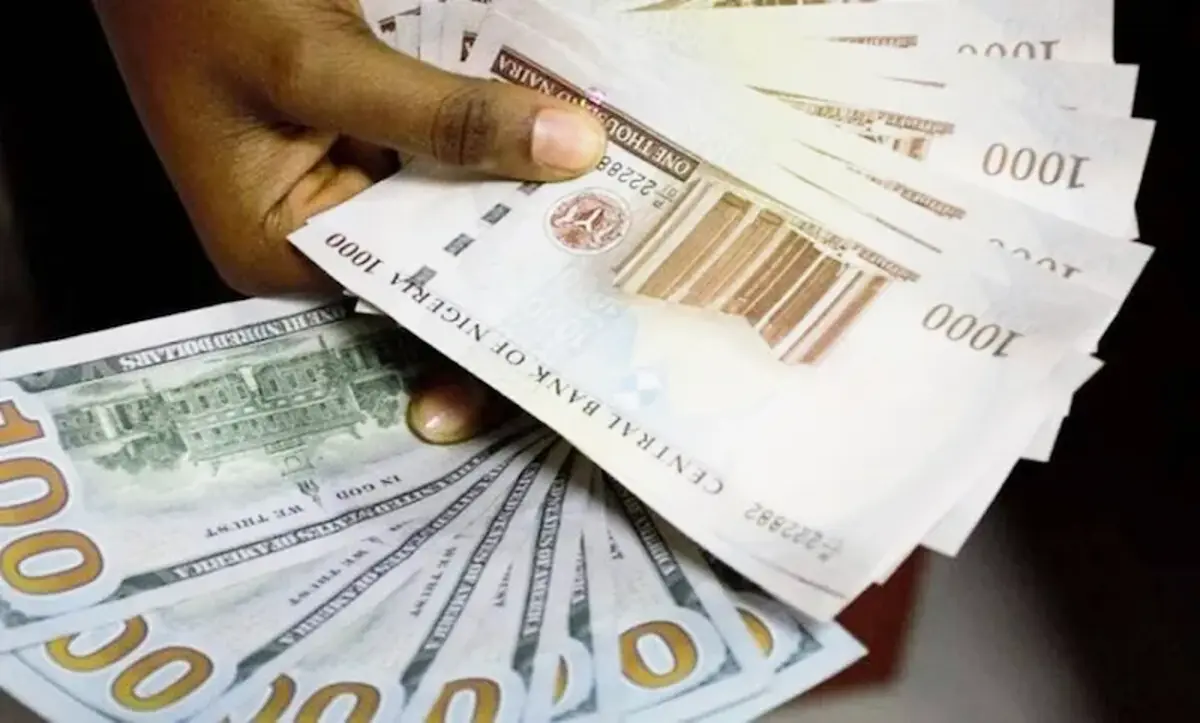
By DAYO ADESULU
Naira Gains Ground in Parallel Market
On Thursday, the Nigerian Naira appreciated slightly in the parallel market, trading at N1,730 per dollar, an improvement from N1,740 per dollar the previous day. This rise indicates a positive shift for the currency in informal trading environments.
Decline in NAFEM Rates
In contrast, the Naira experienced depreciation in the Nigerian Autonomous Foreign Exchange Market (NAFEM), where it fell to N1,650.2 per dollar, up from N1,645.4 per dollar on Wednesday. This represents a depreciation of N4.8 for the Naira, highlighting the volatility in the official market.
Decrease in Dollar Trading Volume
Recent data from FMDQ revealed a decline in the volume of dollars traded in the market. The turnover decreased by 9.33 percent, totaling $214.73 million, down from $236.84 million sold on Wednesday. This reduction in trading activity may indicate a cautious approach among traders in the current economic climate.
Narrowing Gap Between Markets
As a result of these fluctuations, the margin between the parallel market and NAFEM rates has narrowed significantly, decreasing to N79.8 per dollar from N94.6 per dollar on Wednesday. This convergence of rates may reflect changing dynamics in currency trading as market participants respond to economic signals.
Overall, while the Naira showed some strength in the parallel market, its performance in the official NAFEM highlights the ongoing challenges facing the currency in Nigeria’s complex economic landscape.
The Naira’s performance in both the parallel market and the Nigerian Autonomous Foreign Exchange Market (NAFEM) is a reflection of the broader economic conditions affecting Nigeria. Here are some key points to consider:
Economic Context
Nigeria’s economy has been grappling with various challenges, including inflation, fluctuating oil prices, and a reliance on foreign currency for imports. These factors contribute to the volatility observed in the foreign exchange markets.
Parallel Market Dynamics
The parallel market often serves as a barometer for the real value of the Naira, as it reflects the supply and demand dynamics outside of government regulation. When the Naira appreciates in this market, it may indicate increased confidence among traders regarding the currency’s future, or a reduction in demand for foreign currency.
NAFEM Rates and Official Market Influence
The NAFEM is the official platform for foreign exchange transactions in Nigeria, and the rates established here can significantly influence other markets. A depreciation in NAFEM rates, especially against the backdrop of a strengthening parallel market, signals a disconnect between the official and informal channels. This can lead to increased speculation and volatility.
Trading Volume Insights
The decline in dollar trading volume suggests that traders may be taking a more cautious approach, possibly due to uncertainty surrounding government policies, inflation rates, or global economic conditions. Reduced trading activity can further exacerbate volatility in exchange rates.
Implications for Businesses and Consumers
For businesses relying on imports, fluctuations in the Naira’s value can impact costs and pricing strategies. Consumers may also feel the effects through increased prices for goods and services linked to foreign exchange rates.
Future Outlook
Market participants are closely monitoring economic indicators and government policies that could influence the Naira’s performance. Currency stabilization efforts, alongside strategies to boost foreign investment and reserves, will be pivotal in shaping the future of the Naira.
Understanding these dynamics is crucial for anyone involved in trading, investing, or operating within the Nigerian economy. As conditions evolve, staying informed about currency trends and economic signals will be essential for making sound financial decisions.